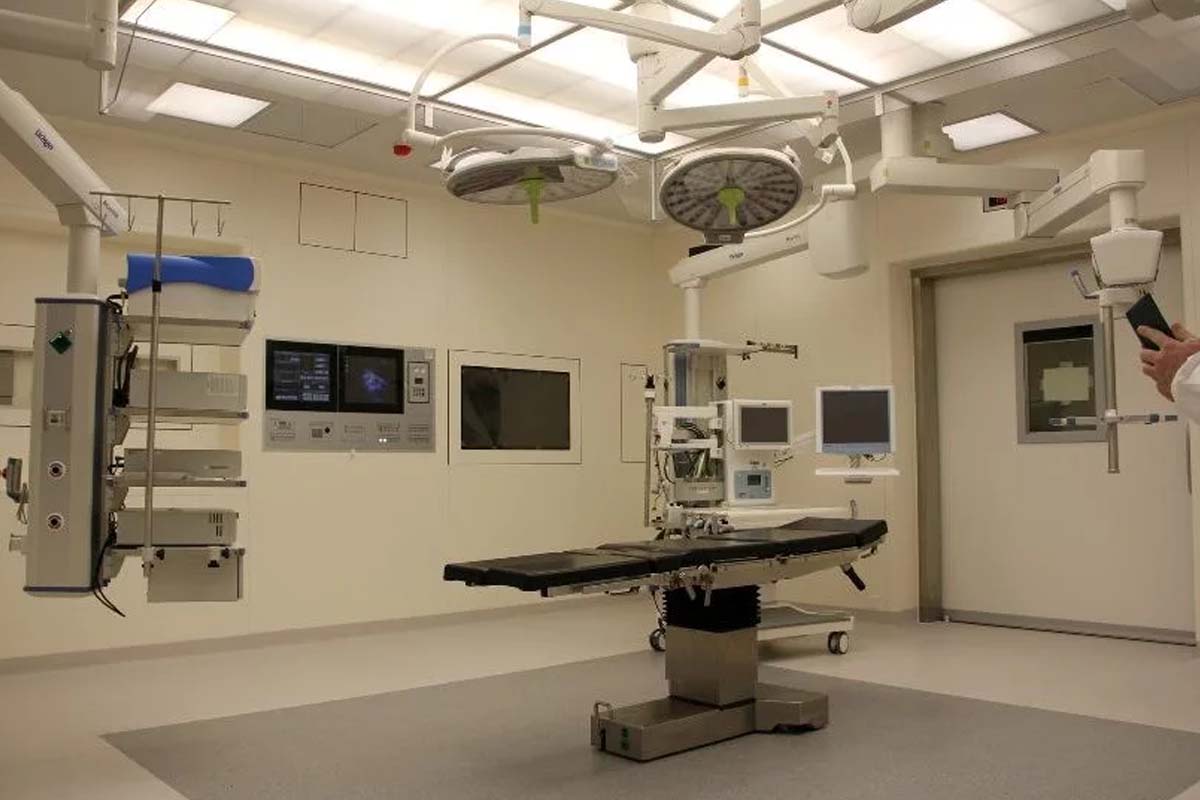Medical negligence occurs when a healthcare provider fails to deliver the standard of care expected in their field, leading to harm or injury to the patient. In Ireland, medical negligence cases are governed by both statutory law and common law, and addressing such medical negligence cases often involves complex legal proceedings. Understanding medical negligence is crucial because it helps patients know their rights and the steps they can take if they suffer harm due to a healthcare professional’s failure. This article provides information into medical misdiagnosis cases, a common form of medical negligence claim, exploring its common occurrences and the serious consequences it can have on patients’ lives.
What Constitutes Medical Misdiagnosis?
Misdiagnosis claims occur when a healthcare provider incorrectly identifies a patient’s condition, leading to inappropriate or delayed treatment. Understanding different types of misdiagnosis claims can help patients recognise potential issues and advocate for accurate diagnosis and timely care. Below are some common types of medical misdiagnosis claims in Ireland:
- Cancer Misdiagnosis Claims
– Breast Cancer Mistaken for a Benign Condition: A patient may be diagnosed with a benign cyst or lump when, in reality, it is malignant breast cancer. This incorrect diagnosis can result in the cancer advancing to a more severe stage, affecting medical treatment options and prognosis.
– Skin Cancer Misdiagnosed as Eczema: A suspicious skin lesion may be misdiagnosed as eczema or another non-threatening skin condition, causing delayed diagnosis of skin cancer. This can lead to more invasive medical care being necessary later on.
- Cardiovascular Misdiagnosis Claims
– Heart Attack Symptoms Misinterpreted: Symptoms like chest pain, shortness of breath, or nausea might be incorrectly attributed to anxiety, digestive issues, or muscular strain. This misinterpretation can lead to a delay in receiving critical cardiac care.
– Stroke Symptoms Overlooked: A stroke may be misdiagnosed as a transient ischemic attack (TIA) or a migraine, leading to insufficient medical treatment and a higher risk of long-term disability.
- Infectious Disease Misdiagnosis Claims
– Sepsis Mistaken for Flu or Viral Illness: Early signs of sepsis, such as high fever and confusion, might be misdiagnosed as a common flu or viral infection. This can lead to a rapid deterioration of the patient’s medical condition if not treated promptly resulting in health complications.
- Neurological Misdiagnosis Claims
– Multiple Sclerosis (MS) Misdiagnosed as Fibromyalgia: Symptoms of MS, such as muscle weakness and numbness, might be confused with fibromyalgia, a condition that affects the muscles and soft tissues. This misdiagnosis can delay appropriate treatment for MS.
– Epilepsy Misdiagnosed as Psychiatric Disorder: Seizures may be misinterpreted as psychological or psychiatric disorders, such as panic attacks or hysteria, leading to inadequate neurological evaluation and treatment.
- Autoimmune Disease Misdiagnosis Claims
– Rheumatoid Arthritis Mistaken for Osteoarthritis: Symptoms of rheumatoid arthritis, like joint pain and stiffness, might be misdiagnosed as osteoarthritis, a condition with different treatment needs and long-term management strategies.
– Lupus Misdiagnosed as Chronic Fatigue Syndrome: Lupus, an autoimmune disease with symptoms including fatigue, joint pain, and skin rashes, can be confused with chronic fatigue syndrome, leading to inappropriate management and prolonged suffering.
- Gastrointestinal Misdiagnosis Claims
– Appendicitis Misdiagnosed as Gastroenteritis: Abdominal pain and nausea from appendicitis might be misdiagnosed as a stomach virus or gastroenteritis. Delayed treatment of appendicitis can lead to severe complications, such as a ruptured appendix.
– Irritable Bowel Syndrome (IBS) Misdiagnosed as Crohn’s Disease: Symptoms of IBS may be mistaken for Crohn’s disease, a more severe inflammatory bowel condition. This misdiagnosis can result in unnecessary treatments or delay the correct management of Crohn’s disease.
- Paediatric Misdiagnosis Claims
– Autism Spectrum Disorder (ASD) Misdiagnosed as ADHD: In children, symptoms of ASD may be misdiagnosed as attention deficit hyperactivity disorder (ADHD). This can lead to inappropriate educational and behavioural interventions.
– Celiac Disease Misdiagnosed as Allergies: Symptoms of celiac disease, such as abdominal pain and diarrhoea, might be misinterpreted as food allergies, leading to a delay in adopting a gluten-free diet essential for managing celiac disease.
- Rare Disease Misdiagnosis Claims
– Genetic Disorders Misdiagnosed as Common Illnesses: Rare genetic conditions, such as certain types of muscular dystrophy or metabolic disorders, may be mistaken for more common illnesses due to their rare presentation. This can delay diagnosis and access to specialized care.
Common Causes of Misdiagnosis in Ireland
Several factors contribute to misdiagnosis, and understanding these can help in both prevention and legal recourse:
- Human Error: Errors in judgment or cognitive biases can lead healthcare professionals to misinterpret symptoms or overlook crucial details.
- Inadequate Testing: Sometimes, the appropriate diagnostic tests are not ordered, or results are misread or miscommunicated.
- Communication Breakdowns: Poor communication between healthcare professionals or between the medical professionals and the patient can lead to missed information and incorrect diagnoses.
- Complexity of Symptoms: Some conditions present with vague or overlapping symptoms that can easily lead to misdiagnosis, especially if a condition is rare or atypical.
Case studies from Ireland show that misdiagnosis and resultant negligent medical care can often stem from systemic issues within the healthcare system, such as understaffing or lack of proper diagnostic tools.
Impact of Medical Misdiagnosis on Patients
The consequences of misdiagnosis claims can be profound and far-reaching:
- Physical Impact: Patients may suffer from worsening health, progression of a disease, or complications that could have been avoided with timely treatment.
- Emotional Impact: Misdiagnosis can lead to significant emotional distress, including anxiety, depression, and a loss of trust in the healthcare system.
- Financial Impact: The costs associated with prolonged or unnecessary treatments, additional medical visits, or even legal battles can be substantial.
- Social Impact: Chronic illnesses or delayed treatments can affect a patient’s ability to work or engage in social activities, impacting their overall quality of life.
Illustrative examples include cases where a misdiagnosed cancer patient experienced significant physical deterioration and financial burden due to the need for more extensive treatment later.
Legal Recourse for Victims of Medical Misdiagnosis
If you believe you have been a victim of medical negligence due to misdiagnosis, here’s what you can do:
- Consult a Medical Negligence Solicitor: An experienced medical negligence solicitors can provide guidance on the strength of your medical negligence claim and the likelihood of success.
- Gather Evidence: Collect all relevant medical records, test results, and documentation of your symptoms and treatments. A solicitor will assist with this.
- Obtain a Medical Expert’s Opinion: Expert evidence from another suitably qualified healthcare professional in the form of expert medical reports can help establish that the original diagnosis was incorrect and caused harm.
- File a Complaint: You can lodge a formal complaint with the healthcare provider’s complaints department or relevant regulatory body.
- Pursue Legal Action: If necessary, your solicitor can help issue legal proceedings for compensation, which may cover medical costs, pain and suffering, and other damages.
Navigating the legal process can be complex, so professional legal advice from a medical negligence solicitor is essential to ensure that your case is handled effectively. That legal advice should be sought as soon as possible.
Conclusion
Understanding medical negligence and medical misdiagnosis claims is vital for safeguarding your health and knowing your rights. Misdiagnosis can have serious and lasting effects, but by staying informed and proactive, you can help ensure that you receive the appropriate care.
If you suspect that you or a loved one has been affected by negligent treatment resulting in a potential medical negligence claim, seek advice from a medical negligence solicitor to explore your options. Remember, timely intervention can make a significant difference in addressing misdiagnosis and obtaining the justice you deserve.
If you wish to discuss a potential medical negligence claim arising out of medical misdiagnosis, contact our medical negligence team at O’Reilly Doherty & Co Solicitors.





